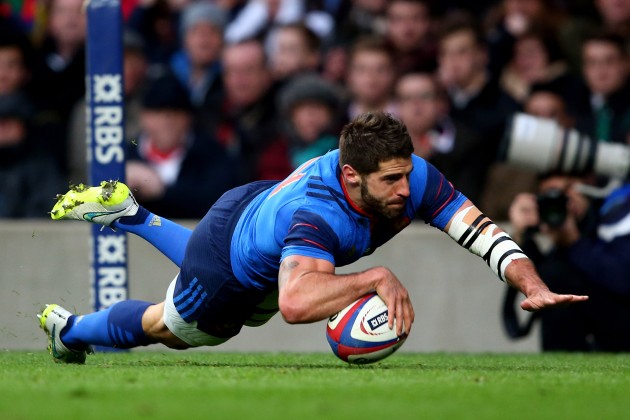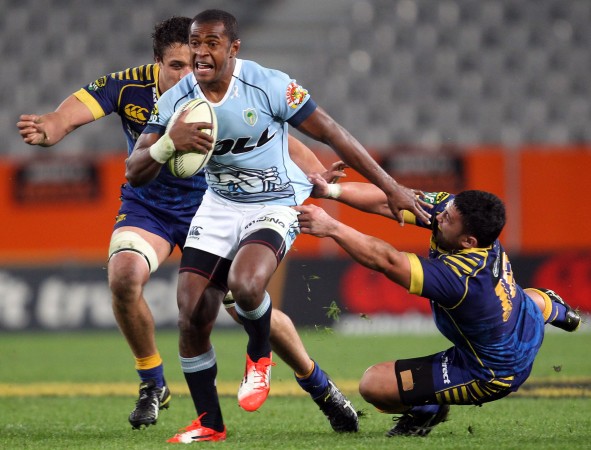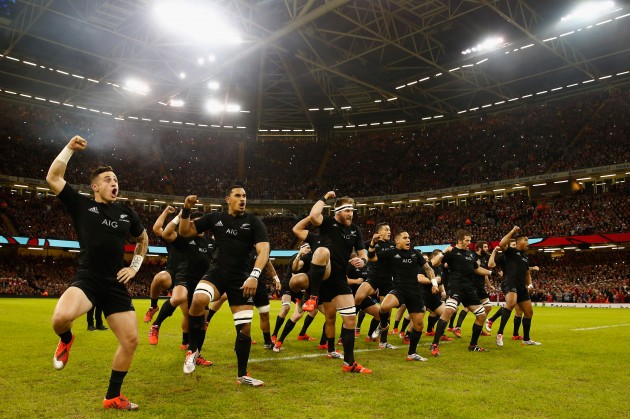We explain what spread betting is and consider whether the betting companies can predict who will win major events
You think you know a thing or two about rugby, until you sit down with the guys in charge of setting the spreads in the betting industry.
There are number-crunchers in that business who proudly boast about watching much more rugby than you, and what’s more, they feel they can make a really good stab at predicting the outcomes of major events like the Rugby World Cup.
“Yes I do think we can accurately predict some trends,” says Andrew Sinfield of sports spread betting company Sporting Index. “Some of the minds we’ve got upstairs – what they know about these sports – you wouldn’t believe. I’d back them to predict anything, be it cricket, racing, anything. They are pricing up things like total (number of) fours in the Cricket World Cup, over 64 games, and I reckon they were within 50.”
According to Sinfield, the betting industry used to be populated with characters; the barrow boys who were brash, loud, had an inside track and probably more importantly, had the balls to back up their mouths. Now things are a lot more methodical. There’s a high chance you won’t get anywhere behind the scenes in modern betting if you don’t have a mathematical background. And are prepared to put the hours of research in, particularly with betting in rugby.
Sports spread betting is a growing phenomenon in this country. Unlike regular betting when the amount that can be won or lost is fixed when the bet is placed, with spread betting the profit or loss changes depending on how accurate the prediction of an outcome is. The basic principle is that the betting organisation sets a spread with a lower quote and higher quote of, say the points a team will score, the number of tries, or how much they win by. If you think that higher quote will be exceeded, you can ‘buy’ and if you believe the outcome will be lower then you can ‘sell’.
As an example you might think New Zealand will score more than a quoted number of points in a World Cup match and ‘buy’ at £10 per point. If they score 20 more points than the higher number put forward by the company, you will receive £200 back. If you ‘sell’, it’s the same principle, except that for every point less than their predicted lower quote, you receive those points times your £10 stake. If New Zealand score ten points less than the lower quote, then, you get £100.
Of course you can get it disastrously wrong. If you sell New Zealand points at 25 and they ended up scoring 50 points, you would owe £250, if you were doing £10 per point. But there is usually the opportunity to cash out if you think a bet is going pear-shaped.
So if you’re going to spot a hole in the betting companies’ odds – and it does happen, with one bad match possibly leading to a “six-figure” loss in rugby – you’ll need to know your stuff, because the experts do, especially Sporting Index’s three full-time rugby guys, according to Sinfield.
“A lot of (what Sporting Index does) is down to player knowledge and how you think players will match up against each other. When we say you can wake up on a Saturday at 7am and watch rugby right through to 10pm, all three of our team will be doing that, 40 Saturdays a year. You have to have in-depth knowledge of these guys. The Fijian that turns up that nobody has heard of, we’ll probably have seen him five or six times playing in the ITM Cup. It’s what we do.”
So how do you approach the Rugby World Cup, then?
“Probably once the warm-ups are out of the way we’ll look at all the intricate markets we can come up with. We’ll get an outright book out soon, at the end of the season, then get working on the intricate stuff in late August. That will be a 100 index, 75, 50s for getting knocked out in the semis and 25 for knocked out in the quarters, nothing for anything else. Back in the day it was all done with a calculator, pen and paper and it’s only recently that we’ve started to run and run loads of simulations. The way that we’ll do it is, we’ll allocate a team a rating and put these into a programme and simulate a game, with about ten thousand simulations of it.
“From that we’ll see what the price should be, the expected price of winning a competition. These ratings obviously update week by week, or game by game for the international sides. You watch a round of matches and say: ‘Are they better or worse than I thought?’ So New Zealand are at the top and we rate them at about 125, assuming that any team they are 125-points better than are worth nothing. Then you stagger it all down so you’ve got a big ladder of what these teams are worth. Then changes in coaches, key retirements, injuries, weather conditions, home advantage and all this stuff is factored in every time you do it. We’ve got databases coming out of our ears!
“We’ll start with the ratings system. I make sure I’m happy with the ladder, then we’ll work through each game and come together and say: “what did you make of total tries?” We’ll talk about where we are different, gravitate towards that middle number and stick a spread on it. There will be ‘heated disagreements’!”
Essentially what these guys do is look at each game in isolation, see player-on-player who they think is better or has more fitting attributes for the contest, and tot that up – before going through every potential outcome, all the way to the end. Do you think you could predict that more accurately than them? Feel free to try. There’s money to be made.
Of course, you don’t have to ask them who they think will win the whole thing. It’s reflected in their spreads. The question really is: can you predict more accurately than them?
Rugby World spoke with Sporting Index as research for our feature “How to win a World Cup without kicking a ball” – in the July 2015 issue. Click here for the latest subscription offers and find out how to download the digital edition here.









